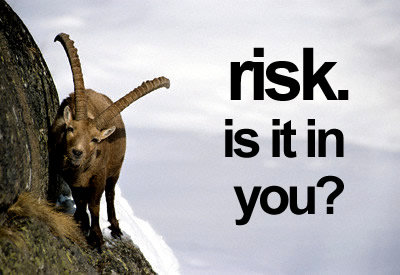Today
begins a new series that will recur throughout the year on this site. I will be
interviewing students from around the world and the US who have made the transition
from secondary school to university or colleges. Today’s interviewee, Yutong,
is remarkable for a number of reasons. She is a trifecta for those who are
betting fans: flat out smart in virtually measurable way, committed to learning
for the sake of learning, and equally committed to helping people in need. She
is, simply, what every school says they want in their students: ethical,
intellectual, and successful.
When I hear people say that Asian students or
students from China do not stand out in a holistic evaluation process because
they are one-dimensional then I know they have not spent time actually talking
with the students. I wish that people could meet her and the many hundreds of other students from Asia who are as committed to the highest ideals of
education in ways that the schools promote in their brochures, if not behind
closed doors in selective admission offices. More and more students from Asia
are branching out and majoring in areas that schools usually love to promote: studio
art and art history, global studies, political and social thought, and yes, even
philosophy.
For
those seeking words of wisdom, Yutong provides words that should be repeated
often to students anywhere in the world. Her answer to 'who she hangs out with'
may be the best response I have ever received to this question. And I have
asked it hundreds and hundreds of times to students all over the world. I have learned
much from Yutong in our conversations and in this interview. I think you will
earn something useful too, whether you are a student, educator, or anyone with an
interest in learning.
*****************************************************************************
 |
| Wuxi No. 1 High School |
· What high school did you attend?
Can you talk a bit about your high school? How big was it, how were the
teachers? Did you like it? What would you change about it?
My
name is Yutong and I’m a second year student at a highly ranked major research
university. I plan to double major in Philosophy and Environmental Science. I’m
from Wuxi, a city near the eastern coast of China. I attended Wuxi No.1 Senior
High School, which is a five star magnet high school founded in 1911. It is one
of the top high schools in China. There are approximately 2,000 students, and
200 faculty members. I really liked it during my three years there, for its
unique cultural values and teaching methods. If I wanted to make change there,
I would suggest more advanced hardware and laboratory facilities for students
and faculty.
· What inspired you to take the risk
to go half a world away?
Why did you decide to come to the US? Was it your idea?
Why did you decide to come to the US? Was it your idea?
Both
my parents and I made the decision. I attended A-level courses in high school,
which is a program designed for students who want to study abroad in the US,
Canada, and the UK. I like taking risks and seeing new things. Going abroad on
my own helps me to see things from my own perspective, and at the same time, to
be more independent.
· If you could give a few pieces of
advice for international students looking to come to the US, what would they
be? How should students decide what schools to look at? How did you decide?
Firstly,
I would suggest them to arrange their time wisely; filling out an application
is a long and complicated process; therefore, it’s better to start early. In
addition, it’s hard to know which school one would fit in better without
actually visiting it. Consulting alumni of various universities would help a
lot. For me, I searched for universities that have good philosophy departments
as well as study abroad programs, and wrote emails to the admission officers
and alumni
· How hard was the transition to the
US? What did not expect that then happened and what did you expect to happen
that did not?
It
was very hard at the beginning. I was not very good at social networking, and
the cultural shock was overwhelming. I had many preconceived notions about how
the classes would be, how I would make friends with others, and how I would
pursue my academic and life goals. Not many of these expectations were fulfilled
after I came here. For example, I wanted to pursue biology research while
studying philosophy; my experiences however led me to discover that to I
enjoyed courses in in Humanities than in Science. And at the same time, I
discovered a whole world full of different opportunities for me to explore
various areas; I never expected myself to be exposed to many wonderful
organizations and NGOs. After I came here, I was involved with Machik, an NGO
started by two excellent Canadian Tibetan sisters, and thus got to learn a lot
from them; I also discovered many wonderful programs in my university, such as
a funded research project and therefore got to know many students with these
same interests.
· You are one of the few
international students, ever, to major in philosophy at your university. How
did you arrive at this major and how did your parents react?
I have
always loved reading and thinking; and when I have some thoughts I loved to discuss
them with my elder cousin, who also majors in Philosophy. Through my talks with
him and the books I read, I found philosophy quite intellectually challenging
and satisfying; it is a subject that’s concerned with every other subject, and
helps people to develop a more rational view of life and a useful way of
thinking and problem-solving. Many people, including my parents, tend to think
of it as something that will never get me a job. However, my parents are very
open-minded people who support me to make decisions on my own. I also agreed
that I will double major in something “more practical”, thus to put myself in a
less risky position.
· What do you think the most
important things to learn are in college?
I
think for me personally, the most important thing so far I have learnt is how
to react to various situations calmly. To be in college in the US on my own was
a great challenge to me. When many unexpected things happened, I started to
realize that I needed to be independent and face them on my own. When I learnt
to keep calm in any situation, I found myself solving problems more efficiently
and wisely. Apart from this, I learnt to explore opportunities on my own.
College is not just about sitting in the library everyday and learning. There
are many more opportunities outside of class where I can learn much more than
facts in the textbook. I learnt to actively search for these opportunities and benefited
a lot.
· What groups are you in and why?
I’m
in Machik, an NGO related to development and education in the Tibetan Plateau. I
have a personal interest in Tibet due to my religious belief and travel
experiences. After I came abroad, I found many more important facts that persuaded
me to be more involved in organizations of this region.
I’m
also in Dreamcorps, an NGO that helps with library building in rural China. I’d
been involved in many rural education programs and activities before I came to
the US. My own opportunity to study in the US made me more aware of the
education injustices in China right now. I’m also the Campus Ambassador of
Teach for China in my university.
· How have you changed since coming
to the US? How do you still want to change?
I
believe I’ve changed a lot, maybe not intentionally. I’m more mature, independent,
and calm than I used to be; besides, I learnt to be more proactive. I do like
to change, since change is not a bad thing. I think usually people are not
easily changed, except when they experience some really important things of
their life, or they are about to change the things they thought they once
wanted.
 |
| Yutong |
· Are you happy? Are you stressed?
Most
of the time I’m happy. I think that I cannot complain when so many people are
living a worse life than I am right now.
· Can you take us through a day in
your life? What time do you get up on Wednesday and then what do you do until
you turn off the light to go to sleep?
On
Wednesday I wake up at nine, then go to the library to study before my first
class at eleven. I have lunch with my friend after class, and then read before
my next class at two, which is my last class on that day. I do not have club
activities or meetings so I go home directly after class. After dinner I study
for the next day, read news, and learn Japanese. I usually go to sleep at 1
a.m.
· Favorite professor and classes?
My
favorite classes are Evil and Suffering taught by Jennifer Geddes; Philosophy
of Religion taught by Trenton Merricks, Buddhist art and architecture taught by
Mr. Daniel Ehnbom, Ecology and Conservation by Robert Swap and Tibetan Buddhism
taught by Jed Verity.
· Who do you hang out with and why?
I
want to hang out with everyone who has interesting ideas.
· Do you feel stereotyped for being
Chinese or for being Asian?
I
usually do not sense it, although sometimes I do feel an initial distance
because some of my classmates would not talk to me a when they first see me.
· Where do you see yourself in 10 years?
I
intend to pursue further studies in my area; therefore, I wish to have enough
experience and knowledge of my areas of interest by that time, and work for a
research institute or a university.







No comments:
Post a Comment